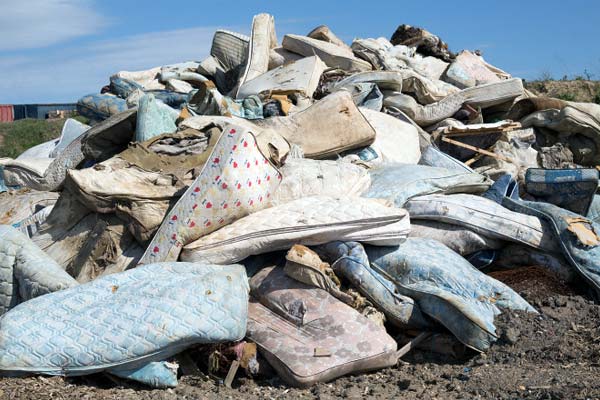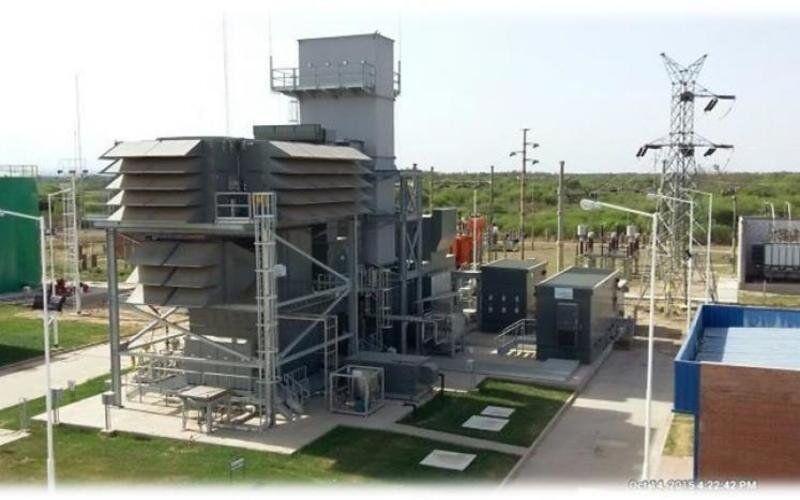|
Hi Team,
Today we are excited to welcome back students from Miss Hall's School as they begin this year's Horizon program — a leadership, community, and service-learning initiative at Miss Hall's. We were lucky enough to have a group last year that was spectacular in helping with research and graphic design. This school year, they'll continue to explore their interests and strengthen their skills as they work alongside us until next May, helping with outreach, advocacy, and research for cleaner energy and zero waste!
Mark your calendars for an exciting geological hike led by expert Mark Brandriss and cosponsored by BEAT and BNRC. Join us on Saturday, December 3, from 10 AM – 1 PM, at BNRC's Hoosac Range reserve in North Adams. Spaces are limited, so make sure to RSVP soon with Charlotte at chood@bnrc.org! You can also find more event details here.
That's it for now. Thanks for all you do to protect the environment!
Jane, Rose, Jake, Noah, and Chelsey
| | |
Free Stream Smart Training with Housatonic Valley Association | "The Berkshire Clean, Cold, & Connected Partnership is hosting a workshop on how to implement Stream Smart Culvert Replacements to help conservation commissions, nonprofits, highways, and towns with navigating culvert replacements to ensure they are fish-friendly and flood resilient. Join Housatonic Valley Association (HVA) to learn how to design, permit, build, and finance culvert replacement projects that address flood resilience and Aquatic Organism Passage (AOP). The free workshop will be held at Berkshire Community College (BCC) in the Koussevitsky Arts Center on Thursday, December 1, from 7:45 AM – 12:15 PM. Participant space is limited, and pre-registration is necessary & required." Register & Learn more | |
Why do snakes bask?
Mary Holland | Naturally Curious
| "Snakes, like other reptiles, are cold-blooded – they are unable to internally regulate their body temperature. On cool days If their body temperature is low, they are sluggish. They don’t move quickly, don’t hunt effectively and if they have food in their stomachs, digestion comes to nearly a standstill. They avoid this situation by basking when cool weather sets in. They lay in the sunshine and/or on rocks or substrate that is heated by the sun, and warm up. When they get to an optimal temperature, they can be active, hunt and digest the food they eat. During these shorter, cooler fall days, before snakes enter hibernation, a great deal of time is spent basking. There is an advantage to using sunlight to control body temperature. Warm-blooded animals must eat a large amount of food fairly continuously because it is the digestion of the food that regulates their body temperature and produces heat, which they must maintain in order to survive. Cold-blooded animals don’t have this restriction since their body temperature is controlled externally. This is why a snake can go for a relatively long period of time (months, depending on species) without eating after it has consumed food. (Photo: Common Gartersnake peering out from under leaves after its basking was disturbed)" Read More |  | |
Waste management departments in Western Mass. adapt to mattress recycling law
Jonah Snowden | Mass Live
| "With a statewide ban on the disposal of textiles and mattresses going into effect Tuesday, municipalities across Western Massachusetts are preparing to divert incoming mattresses from the landfill to the recycler. While residents in Springfield can still arrange for a bulk pickup, municipalities across the area are planning to set up trailers where residents can toss their old mattresses into the recycling stream. Because of a mattress’ bulky size, they have become challenging for haulers and disposal sites to manage, according to the state’s Department of Environmental Protection. 'There is very limited solid waste disposal capacity in Massachusetts, so the best option for the Commonwealth is to reduce the amount of materials that are disposed of,' said Edmund Coletta, public affairs director at the Department of Environmental Protection. He added, 'More than 75% of the materials in a mattress — wood, metal, fabric and the fluff, can be and should be recycled.' Per state law, each town or city is expected to provide a site where mattresses can be recycled and approved by the state’s Department of Environmental Protection. Waste disposal entities not under a contract with the state will no longer be able to accept mattresses after Tuesday. On its website, the Department of Environmental Protection has listed several resources for municipalities to explore, such as contracting with a recycling company, which will collect and dispose of any mattresses residents seek to dispose. [...] The Department of Environmental Protection is also assisting in providing on-site trailers to store mattresses for towns and cities that do not have one with a Mattress Recycling Initiative Grant. Municipalities intending to launch a mattress collecting and recycling program can receive up to $10,000 to buy a mattress collection container." Read More |  |
Salem councilors call for stronger state review of Peabody plant
Dustin Luca | The Salem News
| "The City Council has asked state environmental officials to take another look at the Peabody 'peaker' power plant, adding their voice to the litany of objections and concerns raised over the past year by opponents to the plant and other local officials. A 55-megawatt 'peaker' plant planned in Peabody would be powered by oil and natural gas, and run during peak times of energy use. Construction on the new plant has already started, with developers expecting the $85 million project to be completed by summer 2023. With a unanimous vote Tuesday night, the 11-member council in Salem approved a resolution 'strongly and urgently' opposing the plant’s construction. It calls for Gov. Charlie Baker and Bethany Card, secretary to the state’s Executive Office of Energy and Environmental Affairs to 'reopen the (state review) process and do a full environmental impact review,' echoing a similar plea from Peabody officials. Salem councilors noted they didn’t want to create an impression they were telling their peers in Peabody what to do. The resolution is targeting state actors and calling for further review, they said, feeling it was a necessary statement to make." Read More |  |
September 2022 Reader Photo Gallery
Damian Carrington | The Guardian
| "September photos showed late season fungi and insects, fall flowers including bottle gentians, and the onset of vibrant fall colors. In South Hero, Vermont, a great blue heron showed off its epaulets, and in Ashland, Maine, a coyote picked up some take-out. In Paul Smiths, New York, Doug Kramer captured the view of a tree’s foggy reflection on Osgood lake, while in Ashfield, Massachusetts, Judy Sweet focused in close on the bright red berries of Jack-in-the-pulpit. Check out Sandy Dannis’s image of a grass munching momma bear and her cub." See More Photos | |  |
Environmental Justice and Energy Equity Survey
MA Attorney General's Office
| "This survey is 15 questions long and will take 5 to 10 minutes of your time. Public utilities, like electric power, natural gas, and water, should be affordable and accessible to all residents of Massachusetts. All residents of Massachusetts should also be able to get information about projects related to public utilities. Examples of major projects would include natural gas pipelines and electric power plants. In Massachusetts, it is the job of the Department of Public Utilities (DPU) to make sure that public utilities are affordable and accessible to all residents, and it is the job of the Energy Facilities Siting Board (EFSB) to make sure that residents are able to get information about projects that may affect their communities. The MA Attorney General's Office has convened a Stakeholder Working Group (SWG) to understand whether DPU and EFSB processes are truly accessible to all residents of Massachusetts. This survey will help the SWG learn about people's experiences participating in DPU and EFSB process and whether there are opportunities to make participation accessible to a more diverse group of community members. Your answers to the survey will be anonymous and will only be viewed by the consulting team supporting the efforts of the MA Attorney General's Office and the SWG. " Take the Survey |  |
Growing Up Wild: Professional Development Workshop for Early Childhood Educators
Project Wild | Mass Wildlife
| |
"Growing Up WILD: Exploring Nature with Young Children is an early childhood education activity guide [written for educators of children ages 3–7] that builds on children’s sense of wonder about nature and invites them to explore wildlife and the world around them. Through a wide range of activities and experiences, it provides a foundation for developing positive impressions about nature while also building lifelong social and cognitive skills. Workshop participants will receive a copy of the guide and a certification of completion. | Date: Saturday, December 10 | Time: 9 AM – 3:30 PM | Workshop Fee: $25 | Location: Ada & Archibald MacLeish Field Station, Bechtel Environmental Classroom, 80 Poplar Hill Road, Whately | To register: Please contact Pam Landry at pam.landry@mass.gov. Registration deadline is December 1, 2022.
Space is limited, register early!"
|
American agroforestry accelerates with new funding announcements
Erik Hoffner | Mongabay
| |
"Recent months have delivered a harvest of agroforestry funding news in the U.S., just as the season’s remaining crops ripened. The announcement of $60 million in support from the Department of Agriculture (USDA) in particular has stoked enthusiasm for this sustainable agriculture technique that also sequesters carbon and boosts biodiversity.'There is a windfall of federal money entering the agroforestry sector,' Meghan Giroux told Mongabay. The director of Vermont-based agroforestry consultancy Interlace Commons, she is currently implementing a program to boost regional training capacity toward helping farms implement this sustainable farming technique – which blends annual crops and livestock with perennial shrubs and trees in a carbon-sequestering system that’s also more resilient to droughts and floods – while keeping her eye on the sizable new opportunities coming from the federal government. That federal funding comes as interest in agroforestry is growing rapidly in the U.S. alongside the need to rapidly adopt more climate-positive types of agriculture: though Giroux’s current project is funded by a private foundation, people like her see a myriad of funding opportunities and even more enthusiasm among people seeking training and support to implement it. Lindsay Allen of Buckland, MA, is a good example. Her Fern Hill Farm is one of many currently receiving support from Interlace Commons to implement an agroforestry system where annual crops will be grown among rows of closely planted nut and berry cultivars. [...] Many other farmers like her stand to gain from the USDA’s mid-September unveiling of the Partnerships for Climate-Smart Commodities (CSC) program, investing up to $2.8 billion in 70 projects. One of these 70 is a $60 million project to advance agroforestry, and is administered by The Nature Conservancy, which will distribute funds to local and regional for-profit and nonprofit training and support partners – from Alabama to Maine, Minnesota to Hawaii and Texas – 37 states in all." Read More
|  |
World close to 'irreversible' climate breakdown, warn major studies
Key UN reports published in last two days warn urgent and collective action needed – as oil firms report astronomical profits
Damian Carrington | The Guardian
| "The climate crisis has reached a “really bleak moment”, one of the world’s leading climate scientists has said, after a slew of major reports laid bare how close the planet is to catastrophe. Collective action is needed by the world’s nations more now than at any point since the second world war to avoid climate tipping points, Prof Johan Rockström said, but geopolitical tensions are at a high. [...] Emissions must fall by about half by 2030 to meet the internationally agreed target of 1.5C of heating but are still rising, the reports showed – at a time when oil giants are making astronomical amounts of money. On Thursday, Shell and TotalEnergies both doubled their quarterly profits to about $10bn. Oil and gas giants have enjoyed soaring profits as post-Covid demand jumps and after Russia’s invasion of Ukraine. The sector is expected to amass $4tn in 2022, strengthening calls for heavy windfall taxes to address the cost of living crisis and fund the clean energy transition. All three of the key UN agencies have produced damning reports in the last two days. The UN environment agency’s report found there was 'no credible pathway to 1.5C in place' and that 'woefully inadequate' progress on cutting carbon emissions means the only way to limit the worst impacts of the climate crisis is a 'rapid transformation of societies'. Current pledges for action by 2030, even if delivered in full, would mean a rise in global heating of about 2.5C, a level that would condemn the world to catastrophic climate breakdown, according to the UN’s climate agency. Only a handful of countries have ramped up their plans in the last year, despite having promised to do so at the Cop26 UN climate summit in Glasgow last November." Read More | |
|
Public Notices
Public Notices listed here are from a variety of sources, from town conservation commissions and select boards to state and federal agencies. These listings are for Berkshire, Hampshire, Hampden, and Franklin counties. Listings are only posted if they are environmental in nature. You can find all public notices for Massachusetts here.
| |
Berkshire Environmental Action Team
20 Chapel St., Pittsfield, MA 01201
(413) 464-9402
| |
See what's happening on our social sites: | | | | | |